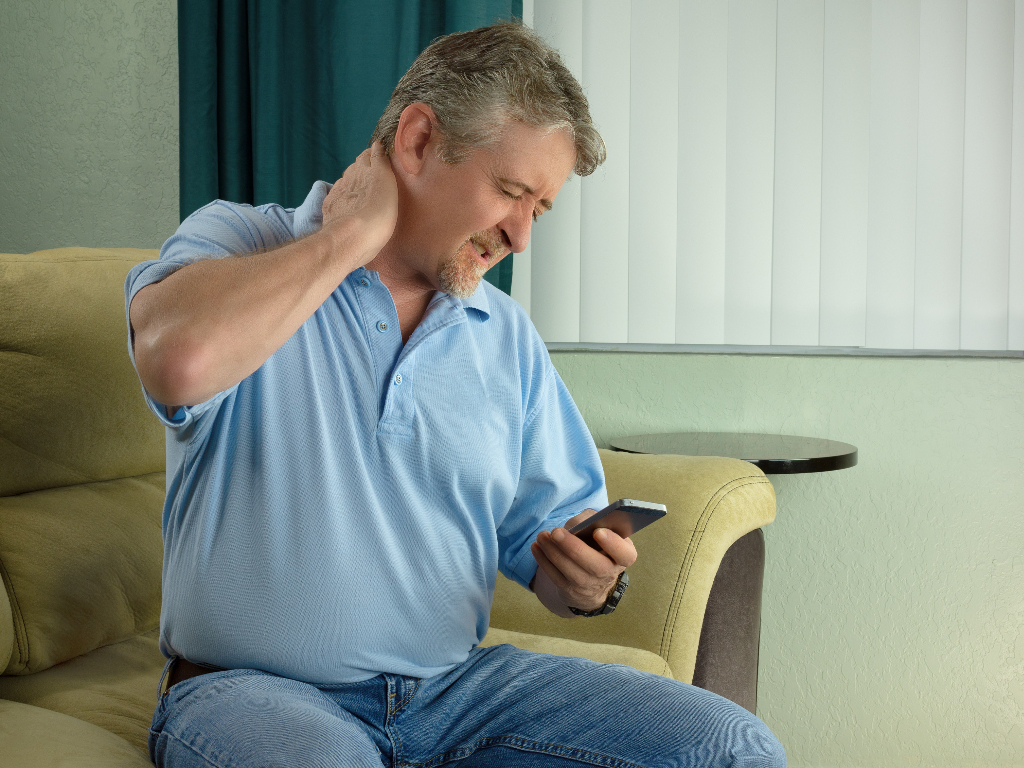Chances are that you probably haven’t given much thought to how your neck and back are faring in the era of the smart phone, but studies show that you most certainly should. It’s practically a reflex these days to pull out our smart phones when we’re standing in line, sitting at the airport or riding the subway. And while it’s great that we rarely need to venture beyond our pockets for entertainment, our bodies are beginning to retaliate—and mourn the pre-texting days.
So, what exactly are these contemporary conveniences doing to our bodies? A surgeon-led study that published in Surgical Technology International assessed what impact surgeons’ head and neck posture during surgery—a posture similar to that of smart-phone texters—has on their cervical spines. With each degree that our heads flex forward (as we stare at a screen below eye level), the strain on our spines dramatically increases. When an adult head (that weighs 10 to 12 pounds in the neutral position) tilts forward at 30 degrees, the weight seen by the spine climbs to a staggering 40 pounds, according to the study.
How pervasive of a problem is this? According to the study, the average person spends 14 to 28 hours each week with their heads tilted over a laptop, smart phone or similar device. Over the course of a year, that adds up to 700 to 1400 hours of strain and stress on our spines. As a result, the number of people dealing with headaches, achy necks and shoulders and other associated pain has skyrocketed. Trained to address postural changes and functional declines, we are now treating what we call “text neck” more often than in years past.
Over time, this type of poor posture can have a cumulative effect, leading to spine degeneration, pinched nerves and muscle strains. At M3 Performance and Physical therapy we focus on helping people learn how to interact with their devices without harming their spines. Many times, we simply prescribe an at-home program that includes strategies and exercises that focus on preserving the spine and preventing long-term damage.
Exercise is an important part of taking care of our spines as we age, but what we do when we’re not in motion matters, too. So next time you pick up your smart phone or curl up with your e-reader, do a quick check of your head and neck posture. Your body will thank you for years to come.

